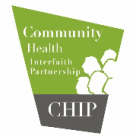There is a growing interest in creating “trauma-informed” services and treatment reflecting the understanding that psychological trauma and toxic stress can affect every aspect of life, and that everyone has a role to play in addressing the issue.
Trauma results from events or circumstances that are experienced as harmful or life threatening and that have lasting adverse effects on mental, physical, social, emotional, or spiritual well-being. While many individuals experience traumatic events without lasting harm, trauma can place a heavy burden on individuals, families, and communities. Trauma-informed supports can help. Being trauma-informed is defined in the following way:
Realizing how trauma affects people
Recognizing the signs
Responding by changing practices
Resisting re-traumatization by addressing trauma and toxic stress in the lives of both staff and people served
For some, religious beliefs and faith provide help to re-establish a sense of meaning after a life-shattering event. For others, relationships formed in the spiritual community are deeply supportive. Research also documents the positive effects of prayer and spiritual practices like meditation, contemplation, and sacred music. For example, yoga is known to be an effective treatment for trauma-related problems, while meditation and mindfulness training reduce depression and anxiety.
Clearly, faith communities can be healing. A congregation that fully understands the impact of trauma and knows how to respond is trauma-informed. In addition to understanding the impact of stress, a trauma-informed congregation expects and supports recovery after adversity; has physical, social, and psychological resources to help buffer and heal the negative effects of traumatic events; and is prepared to take deliberate, collective action in the face of adversity.
Here are a few ways to make your congregation or community more trauma-informed:
Ø Become educated about how trauma and toxic stress affect people. You may be surprised at how often trauma underlies seemingly unconnected problems.
Ø Ask “What happened?” instead of “What’s wrong?” when talking with a friend in need.
Ø Give people the chance to tell their stories in their own time and way. While specialized trauma treatment is sometimes needed, having someone acknowledge what happened is often enough to begin a healing process.
Ø Encourage and express empathy in your family, congregation, and community.
Ø Convey a message of nonviolence, love, and compassion.
Ø Ask faith leaders to support the development of a trauma-informed congregation and join the movement.
To learn more about becoming a trauma-informed congregation or community, please sign up for our newsletter at HHS.gov/Partnerships
Trauma results from events or circumstances that are experienced as harmful or life threatening and that have lasting adverse effects on mental, physical, social, emotional, or spiritual well-being. While many individuals experience traumatic events without lasting harm, trauma can place a heavy burden on individuals, families, and communities. Trauma-informed supports can help. Being trauma-informed is defined in the following way:
Realizing how trauma affects people
Recognizing the signs
Responding by changing practices
Resisting re-traumatization by addressing trauma and toxic stress in the lives of both staff and people served
For some, religious beliefs and faith provide help to re-establish a sense of meaning after a life-shattering event. For others, relationships formed in the spiritual community are deeply supportive. Research also documents the positive effects of prayer and spiritual practices like meditation, contemplation, and sacred music. For example, yoga is known to be an effective treatment for trauma-related problems, while meditation and mindfulness training reduce depression and anxiety.
Clearly, faith communities can be healing. A congregation that fully understands the impact of trauma and knows how to respond is trauma-informed. In addition to understanding the impact of stress, a trauma-informed congregation expects and supports recovery after adversity; has physical, social, and psychological resources to help buffer and heal the negative effects of traumatic events; and is prepared to take deliberate, collective action in the face of adversity.
Here are a few ways to make your congregation or community more trauma-informed:
Ø Become educated about how trauma and toxic stress affect people. You may be surprised at how often trauma underlies seemingly unconnected problems.
Ø Ask “What happened?” instead of “What’s wrong?” when talking with a friend in need.
Ø Give people the chance to tell their stories in their own time and way. While specialized trauma treatment is sometimes needed, having someone acknowledge what happened is often enough to begin a healing process.
Ø Encourage and express empathy in your family, congregation, and community.
Ø Convey a message of nonviolence, love, and compassion.
Ø Ask faith leaders to support the development of a trauma-informed congregation and join the movement.
To learn more about becoming a trauma-informed congregation or community, please sign up for our newsletter at HHS.gov/Partnerships

